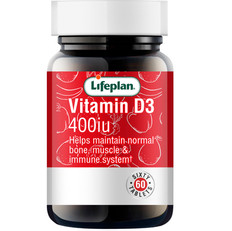Vitamin D - The sunshine nutrient
- Hello to Health

- Dec 29, 2020
- 3 min read

Cholecalciferol, more commonly known as Vitamin D, is a fat soluble nutrient whose main role is to control the calcium and phosphate balance in the body.
Vitamin D is mainly obtained by sunlight, so those who spend a lot of time indoors or cover up when outdoors are most likely to be low or deficient in Vitamin D. It can also be found in small quantities in oily fish and dairy products, so people who avoid these foods are also at risk of deficiency. It is believed over 1 billion people worldwide are deficient in this nutrient.
We have put together some interesting facts and FAQ's on Vitamin D to help understand why this vitamin is so essential to us:
Vitamin D was first discovered around 1910, when it was found to cure Rickets - a bone disease commonly seen in children at that time.
Iron has been often been considered one of the most common nutricional deficiencies in the UK, however Vitamin D is not far behind and due to being needed for the absorption of calcium - calcium deficiency is also on the rise.
Vitamin D is derived from UV light exposure on the skin so it is easily obtainable in the summer months, but more difficult in the darker, winter months.
Darker skins need more sun exposure than people with pale skin to obtain the same amount of vitamin D. This is due to the increaed colour pigment melanin which blocks out UV rays.
Vitamin D is technically not a vitamin, as it doesnt need to be consumed from the diet (it is instead synthesised on skin from sunlight). It is most accurately called a steroid hormone.
Lifeplan's nutritionist has answered the most frequently asked questions below:
Q: Why do you need Vitamin D?
A: It contributes to the normal function of the immune system and has a role in the process of cell division. It also contributes to the maintenance of normal bones and teeth and normal muscle function.
Q: How much Vitamin D should I be taking?
A: If you are low in Vitamin D, 1000IU is suggested, however general health and wellbeing we would recommend 400IU daily. For those who have a clinical deficiency in Vitamin D a daily intake of 4000IU is advised.
Q: Should I take Vitamin D all year round?
A: Although it is safe to take Vitamin D supplements all year round, if you get outdoors for most days in the summer months you may not need to supplement in summer. Vitamin D can be stored for around 6 weeks in the body, so by Autumn you should think about starting supplements.
Q: What are the symptoms of Vitamin D deficiency?
A: Symptoms vary depending on the deficiency. These can include depression, fatigue, increased susceptibility to infections, bone pain and muscle weakness.
Q: Can I take too much Vitamin D?
A: Vitamin D is a fat soluble nutrient so yes, it is possible to take too much Vitamin D if you are using supplements Always read the label and never take more than the recommended daily amount
Q: Are there different types of Vitamin D and strength?
A: Vitamin D3 is the best form of Vitamin D, since it is the form that the body can easily use. You are best to take 400IU for everyday use, 1000IU if you believe you are low in Vitamin D (or rarely go out in sunlight) and 4000IU if you have been told that you are deficient.
Q: Can children take Vitamin D?
A: It is recommended that children take Vitamin D, since insufficient levels increase the risk of the bone disease Rickets. Children should only take Vitamin D products that state they are safe to be given to children, as most of the Vitamin D supplements on the market are for adults only.
Q: What are the best sources of Vitamin D?
A: The best source of Vitamin D is UV light from the sun. The second best source is oily fish (salmon, mackerel, sardines), eggs and UV-treated mushrooms. You can also find Vitamin D in fortified foods such as breakfast cereals, margarine and some types of bread.
Q: Are Lifeplan's Vitamin D tablets suitable for vegetarians?
A: Yes, Vitamin D in these tablets is derived from lanolin (sheep's wool) which is suitable for vegetarians to take. Vitamin D capsules are available in 400IU strength capsules and 1000IU strength capsules
Q: Are Lifeplan Vitamin D tablets suitable for Vegans?
A: Unfortunately, as lifeplan's standard Vitamin D contains lanolin from sheep's wool, it is not suitable for vegans. However Lifeplan have just released two new Vegan Vitamin D supplements which are suitable for vegans. They are available in 1000IU strength capsules and 2000IU strength capsules and are in stock now.










Comments